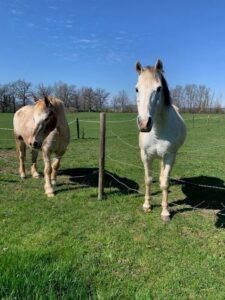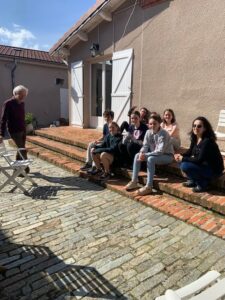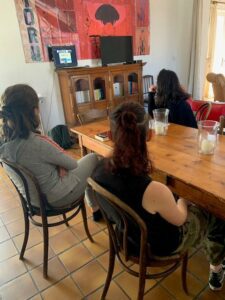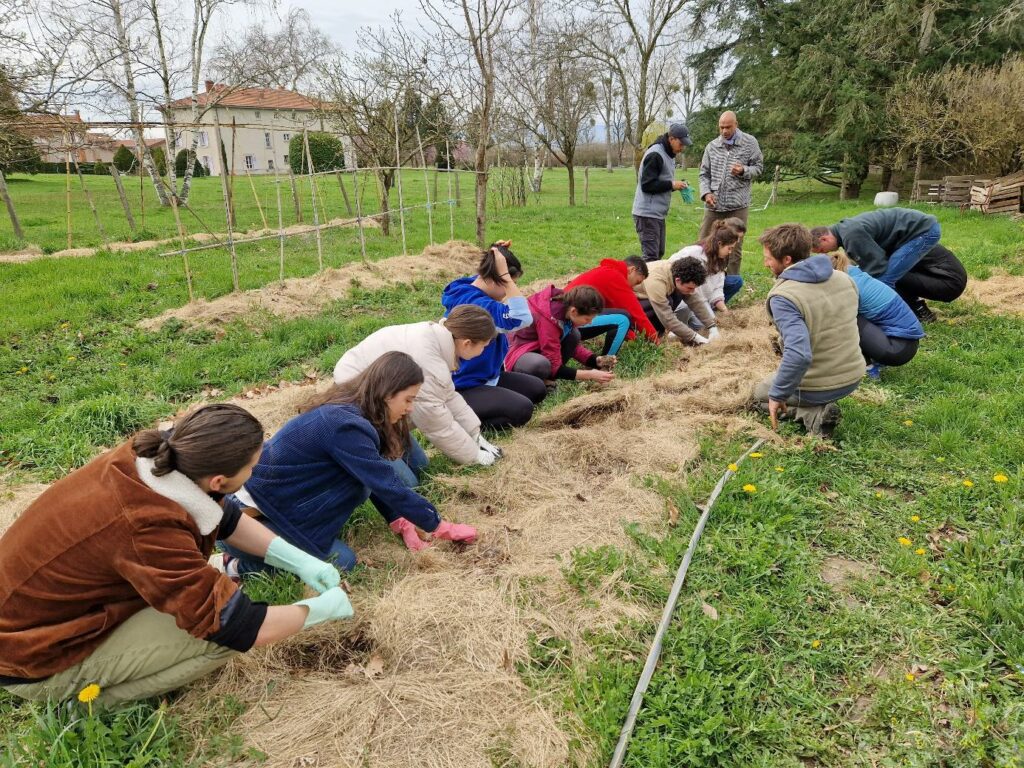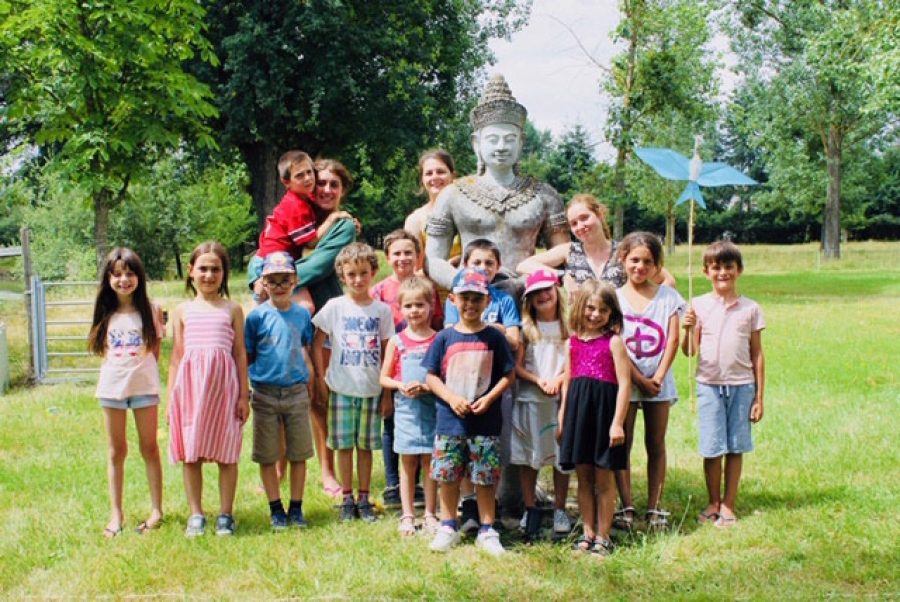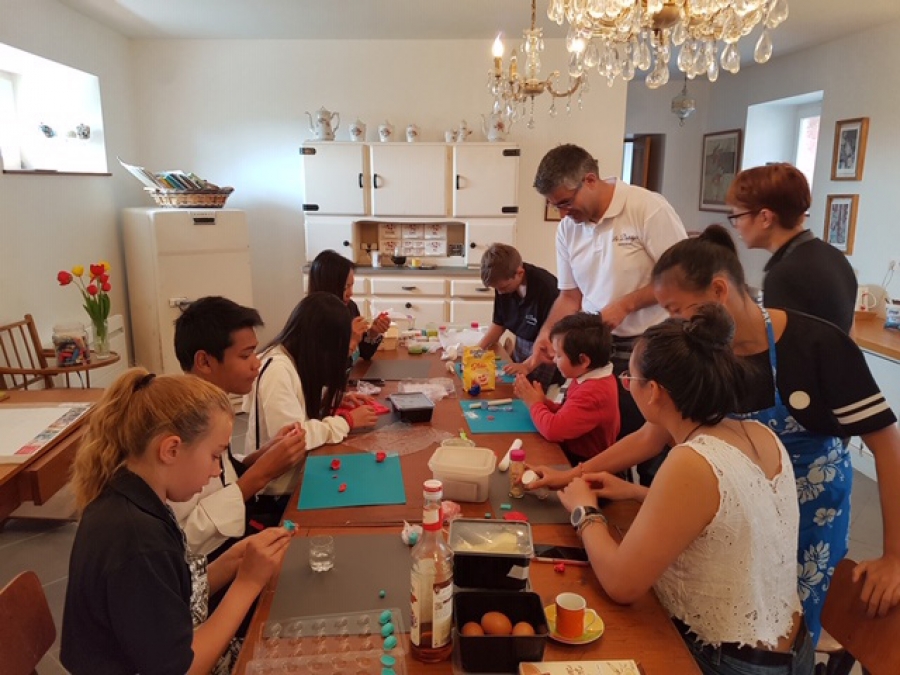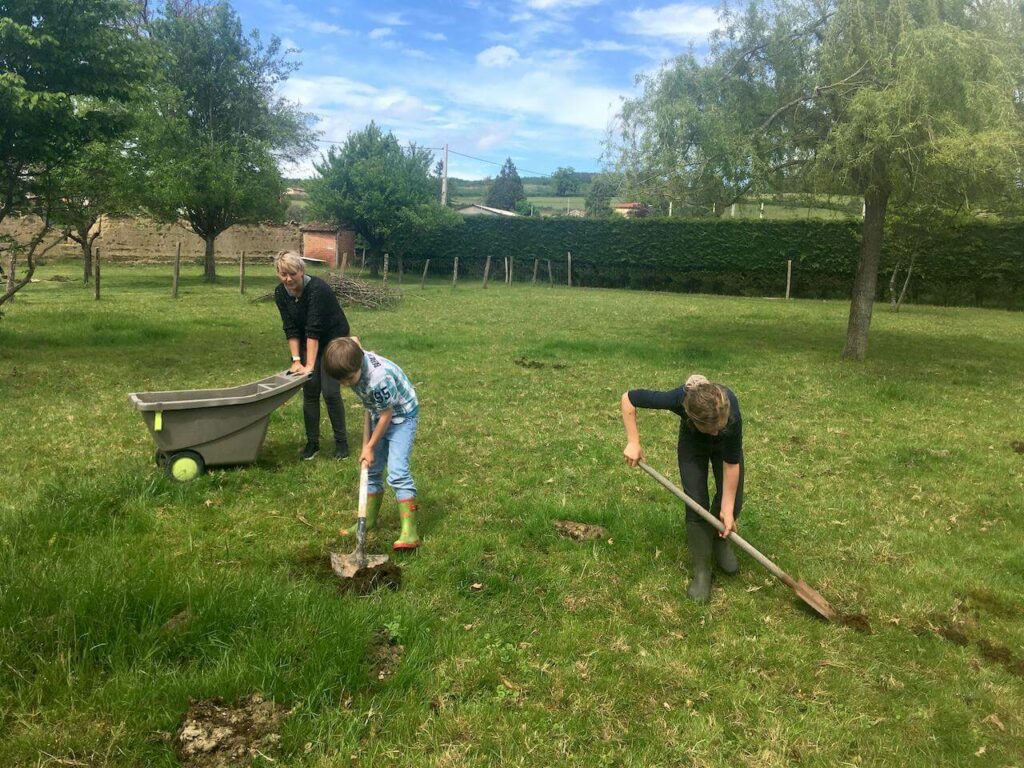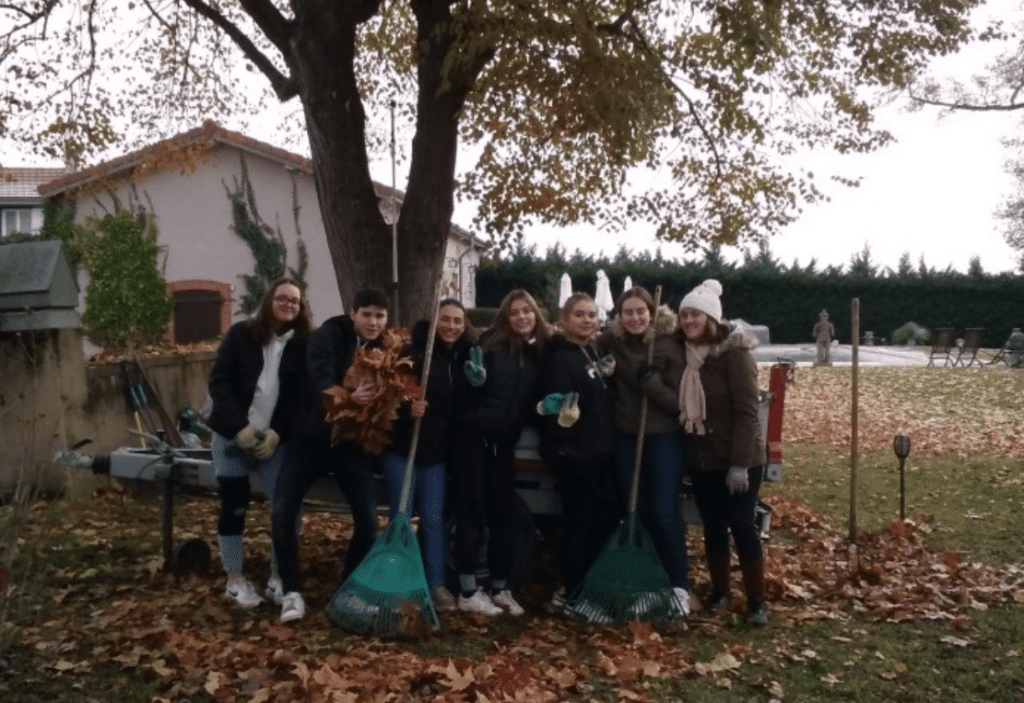Following on from the autumn “soil wintering” training course, our market gardener from Ferme de l’Oasis continued his educational training on raising awareness of sustainable agriculture with a “soil wintering” workshop with EMLYON students and high-school pupils from Forez.
To kick off the day, the youngsters visited the garden and observed the soil after overwintering. Under the mulch cover, they were able to discover arable land that had been well tilled naturally by earthworms. Adjacent to this permacultural space, a so-called traditional garden is cultivated by our retired senior volunteers. The young people were thus able to compare the soils in these two areas. As they explored the ground, the youngsters noticed that numerous galleries had been formed by voles, field rats that can cause serious damage, and we’re counting on the estate’s two cats to keep them out.
Following the soil survey, the youngsters were busy planting 4 varieties of potato (Désirée, Céphora, Charlotte, Agria) as well as corn and cabbage.
The young people also took part in the preparation of a hundred seedlings with melon seeds, beans, peas, zucchinis, tomatoes and eggplants. These seedlings will be placed in a greenhouse until May to germinate, after which they will be planted in the ground during the next teaching session.
These two consecutive workshops on seedlings with students and then with secondary school pupils enabled Albatross volunteers to adapt the training to audiences of different ages and with adapted teaching methods.
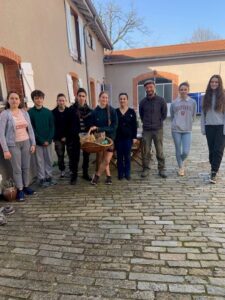
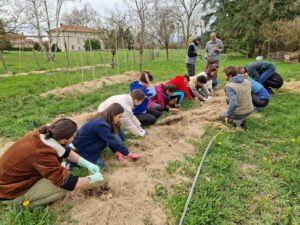
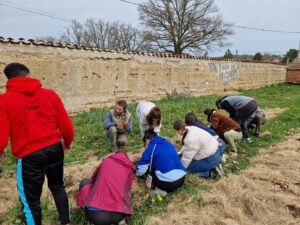
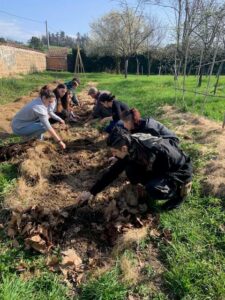
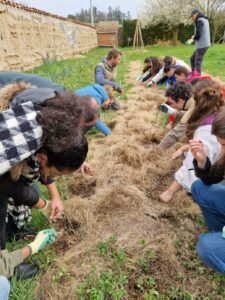
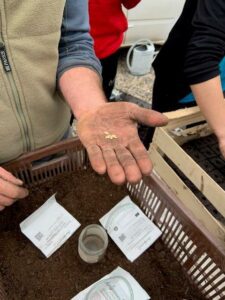
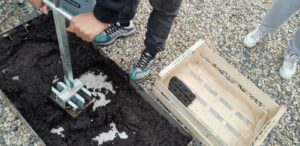
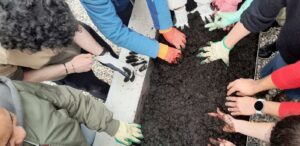
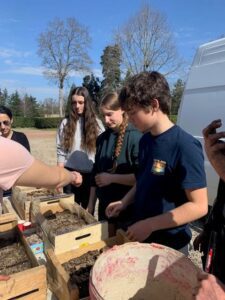
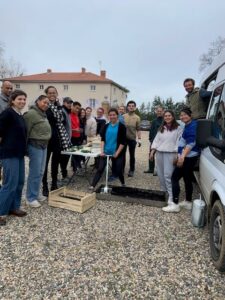
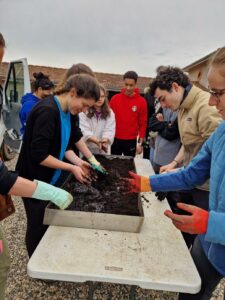
To complement the seeding workshop, Albatross organized for the first time a Breeding workshop with the participation of a new volunteer member of Albatross, Dr. G. B. B., who is also a member of Albatross. Norbert Gauthier, a veterinarian and horse breeder who has also begun training in agriculture.
In this way, the young people were able to understand why animals have their rightful place on a farm or in a vegetable garden. Donkeys, horses and sheep produce manure, mow grass and prevent trees from growing. In addition, an educational walk in the meadows around the estate enabled us to compare naturally grazed meadows and ryegrass, appreciated for its high forage quality.
In addition to the pedagogical day, a training session for the sustainable development delegates of the classes was organized by the high school’s SD representative.
